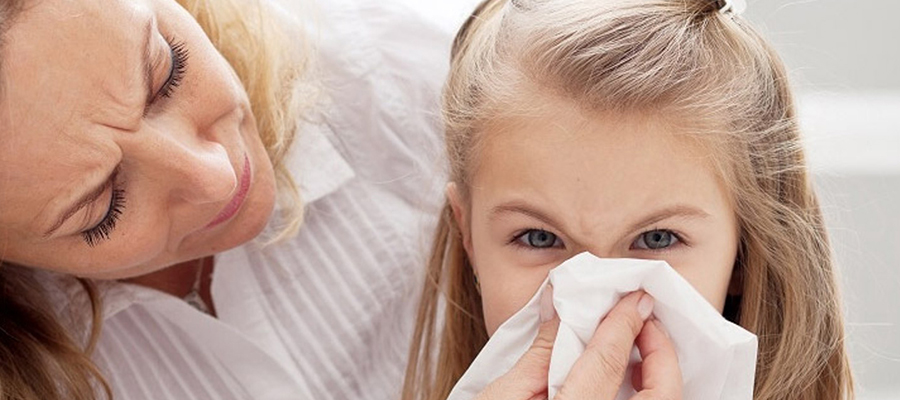
Estimated reading time: 3 minutes and 59 seconds
Sinusitis Treatment in Children
Sinusitis Treatment in Children: Alleviating Discomfort and Promoting Healing
Sinusitis, a common condition in children, occurs when the sinus cavities become inflamed and swollen due to infection, allergies, or other factors. This can lead to symptoms such as nasal congestion, facial pain, coughing, and difficulty breathing. Sinusitis treatment in children focuses on providing relief from symptoms, reducing inflammation, and addressing the underlying cause of the condition. At Aktif International Hospitals, we understand the unique needs of pediatric patients and offer comprehensive sinusitis treatment options tailored to their age and medical history, ensuring effective relief and a speedy recovery.
Frequently Asked Questions
What causes sinusitis in children?
Sinusitis in children can be caused by various factors, including:
- Viral infections: Common cold viruses can lead to inflammation of the sinus cavities, especially in young children with developing immune systems.
- Bacterial infections: Bacterial sinusitis may occur as a complication of a viral infection or due to other factors, such as exposure to bacteria in daycare or school settings.
- Allergies: Seasonal allergies, hay fever, or exposure to allergens such as pollen, dust, or pet dander can trigger sinus inflammation in susceptible children.
- Structural abnormalities: Deviated septum, nasal polyps, or adenoid hypertrophy can obstruct the nasal passages and contribute to sinusitis.
- Environmental factors: Air pollution, smoke, dry air, or changes in altitude may irritate the nasal passages and increase the risk of sinusitis in children.
What are the symptoms of sinusitis in children?
Symptoms of sinusitis in children may vary depending on the underlying cause and severity of the condition. Common symptoms include:
- Nasal congestion or stuffiness, making it difficult for the child to breathe through the nose
- Thick nasal discharge, often yellow or green in color
- Facial pain or pressure, particularly around the forehead, cheeks, and eyes
- Coughing, especially at night or upon waking in the morning
- Postnasal drip, leading to throat irritation, coughing, or sore throat
- Reduced appetite, especially if nasal congestion interferes with the child’s ability to smell or taste food
- Fatigue, irritability, or fussiness, particularly in younger children who may have difficulty communicating their discomfort
How is sinusitis diagnosed in children?
Diagnosis of sinusitis in children typically involves a combination of medical history review, physical examination, and diagnostic tests. Your child’s healthcare provider may perform a nasal endoscopy to examine the nasal passages and sinus cavities for signs of inflammation, polyps, or other abnormalities. Imaging studies such as computed tomography (CT) scans or magnetic resonance imaging (MRI) may also be ordered to evaluate the extent of sinus involvement and identify any structural issues.
What are the treatment options for sinusitis in children?
Treatment for sinusitis in children aims to relieve symptoms, reduce inflammation, and address the underlying cause of the condition. Treatment options may include:
- Nasal saline irrigation: Using a saline solution to rinse the nasal passages can help clear mucus and alleviate nasal congestion.
- Nasal decongestants: Over-the-counter or prescription nasal sprays containing decongestants can help shrink swollen nasal tissues and improve breathing.
- Pain relievers: Acetaminophen or ibuprofen may be recommended to alleviate facial pain, headache, or fever associated with sinusitis.
- Antibiotics: If sinusitis is caused by a bacterial infection, your child’s healthcare provider may prescribe antibiotics to clear the infection.
- Allergy medications: Antihistamines, corticosteroids, or allergy shots may be recommended for children with allergic sinusitis to reduce inflammation and prevent recurrence.
What is the recovery time for sinusitis treatment in children?
The recovery time for sinusitis treatment in children depends on the severity of the condition, the effectiveness of treatment, and individual factors such as overall health and immune function. With appropriate treatment, symptoms of acute sinusitis in children often improve within a few days to a week. Chronic sinusitis may require longer-term management to control symptoms and prevent recurrence.
How can Aktif International Hospitals help children with sinusitis?
At Aktif International Hospitals, our pediatric otolaryngologists (ear, nose, and throat specialists) specialize in the diagnosis and treatment of sinusitis and related conditions in children. We offer child-friendly diagnostic techniques, innovative treatment options, and compassionate care to help children find relief from sinusitis symptoms and get back to enjoying their daily activities. If your child is experiencing symptoms of sinusitis or recurrent sinus issues, we encourage you to schedule a consultation with one of our specialists to discuss treatment options and develop a personalized care plan tailored to your child’s needs.
Author: Ersen Türker


 TR
TR FR
FR ES
ES RU
RU RO
RO